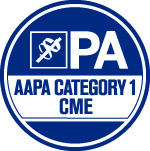WMJ Vol 122 Issue 5: Uptake Rates of Three COVID-19 Vaccine Doses and Risk Factors for Incomplete Vaccination Among Patients With Inflammatory Bowel Disease Residing in Wisconsin: A Single-Center Cohort
ABSTRACT
Introduction: Patients with inflammatory bowel disease on systemic corticosteroids may be at higher risk of adverse outcomes of COVID-19 infection, and vaccination is an essential preventive measure. Uptake of the original 2-dose COVID-19 messenger RNA (mRNA) primary vaccine series was previously high among patients with inflammatory bowel disease, while uptake of subsequent doses based on interval recommendations made by the Advisory Committee on Immunization Practice remains unknown. Herein, we evaluated uptake of 3 COVID-19 mRNA vaccine doses among patients with inflammatory bowel disease.
Methods: We performed a single-center, retrospective study evaluating COVID-19 vaccine uptake among adult patients with inflammatory bowel disease residing in Wisconsin who were seen at the University of Wisconsin Digestive Health Center. Vaccination status as of April 30, 2022, was verified in the Wisconsin Immunization Registry. A multivariable logistic regression was performed with the primary endpoint of receipt of 3 COVID-19 vaccine doses. Secondary outcomes included identification of demographic and clinical variables associated with incomplete vaccination.
Results: A total of 1012 patients were identified; 728 (71.9%) patients received 3 COVID-19 vaccine doses. Multivariable logistic regression revealed that younger age (odds ratio [OR] 1.02; 95% CI, 1.01 – 1.03; P = 0.001), rural status (OR 3.44; 95% CI, 2.17 – 5.56; P < 0.001), underrepresented minority status (OR 3.85; 95% CI, 1.89 – 7.69; P < 0.001), and absence of influenza vaccination (OR 8.17; 95% CI, 5.41 – 12.33; P < 0.001) were significantly associated with incomplete COVID-19 vaccination.
Conclusions: Receipt of 3 COVID-19 mRNA vaccine doses is high overall among patients with inflammatory bowel disease. Younger age, underrepresented race/ethnicity, rural status, and lack of influenza vaccination are associated with incomplete COVID-19 vaccination.
Intended Audience
The target audience for this journal-based activity is healthcare providers caring for the people and communities of Wisconsin and beyond.
Learning Objectives
As a result of this journal-based activity, learners, as members of the healthcare team, will be able to:
- Summarize the primary outcome of a single-center, retrospective study—rates of three COVID-19 vaccine doses among adult patients with inflammatory bowel disease.
- Evaluate the secondary outcomes of this study, including demographic and clinical variables associated with incomplete COVID-19 vaccination.
- Discuss how clinical teams, including those caring for immunosuppressed patient populations, could improve COVID-19 vaccination.
FACULTY DISCLOSURE
It is the policy of the University of Wisconsin–Madison Interprofessional Continuing Education Partnership (ICEP) to identify, mitigate and disclose all relevant financial relationships with ineligible companies* held by the speakers/presenters, authors, planners, and other persons who may influence the content of this accredited continuing education (CE). In addition, speakers, presenters and authors must disclose any planned discussion of unlabeled/unapproved uses of drugs or devices during their presentation.
For this accredited continuing education activity all relevant financial relationships have been mitigated and detailed disclosures are listed below.
| Name of Individual | Individual's Role in Activity | Financial Relationship Disclosure | Discussion of |
| Trevor L. Schell, MD | Author | No relevant relationships with ineligible companies to disclose | No |
| Miguel A. Mailig, BS | Author | No relevant relationships with ineligible companies to disclose | No |
| Mazen Almasry, MBBS | Author | No relevant relationships with ineligible companies to disclose | No |
| Sarah Lazarus, BS | Author | ||
| Luke J. Richard, MD | Author | ||
| Katharine Tippins, BS | Author | No relevant relationships with ineligible companies to disclose | No |
| Jennifer Weiss, MD, MS | Author | ||
| Mary S. Hayney, PharmD, MPH | Author | ||
| Freddy Caldera, DO, MS | Author | ||
| Cezarina Mindru, MD | Reviewer | No relevant relationships with ineligible companies to disclose | No |
| Christopher J. Crnich, MD | Reviewer | No relevant relationships with ineligible companies to disclose | No |
| Fahad Aziz, MD | Editor | No relevant relationships with ineligible companies to disclose | No |
| Roberta Pawlak, PhD, RN, NEA-BC | Reviewer | No relevant relationships with ineligible companies to disclose | No |
| Cassie Meffert, PA | Reviewer | No relevant relationships with ineligible companies to disclose | No |
| Shezad Baloch | Accreditation Specialist | No relevant relationships with ineligible companies to disclose |
*Ineligible companies are those whose primary business is producing, marketing, selling, re-selling, or distributing healthcare products used by or on, patients.
The ACCME does not consider providers of clinical services directly to patients to be ineligible companies.
Accreditation
Accreditation Statement
 | In support of improving patient care, this activity has been planned and implemented by the University of Wisconsin–Madison ICEP and the Wisconsin Medical Journal. The University of Wisconsin–Madison ICEP is jointly accredited by the Accreditation Council for Continuing Medical Education (ACCME), the Accreditation Council for Pharmacy Education (ACPE), and the American Nurses Credentialing Center (ANCC), to provide continuing education for the healthcare team. |
Credit Designation Statements
American Medical Association (AMA)
The University of Wisconsin–Madison ICEP designates this journal-based CE activity for a maximum of 1.0 AMA PRA Category 1 Credit™. Physicians should claim only the credit commensurate with the extent of their participation in the activity.
American Nurses Credentialing Center (ANCC)
The University of Wisconsin–Madison ICEP designates this journal-based CE activity for a maximum of 1.0 ANCC contact hours .
 | The University of Wisconsin–Madison ICEP has been authorized by the American Academy of PAs (AAPA) to award AAPA Category 1 CME credit for activities planned in accordance with AAPA CME Criteria. This activity is designated for 1 AAPA Category 1 CME credits. Approval is valid until 08/21/2025. PAs should only claim credit commensurate with the extent of their participation. |
Continuing Education Units
The University of Wisconsin–Madison ICEP, as a member of the University Professional & Continuing Education Association (UPCEA), authorizes this program for 0.1 continuing education units (CEUs) or 1 hour.
Available Credit
- 1.00 AAPA Category 1 CME
- 1.00 ACPE Contact Hours - Pharmacist
- 1.00 AMA PRA Category 1 Credit™
- 1.00 ANCC Contact Hours
- 1.00 University of Wisconsin–Madison Continuing Education Hours
- 1.00 Approved for AMA PRA Category 1 Credit™
Registration for this activity can only be completed through the ICEP Learning Portal. Attendee registrations made through any other sites cannot be honored. UW-Madison ICEP is not able to refund fees paid through unaffiliated registration sites, such as eMedEvents.com, MedConfWorld.com, EventEgg.com, and 10times.com. Please report any unauthorized websites or solicitations for registrations to [email protected].
Accessibility
If you need anything to participate in this program, please contact [email protected].
Required Hardware/software
Free, current version of Chrome, Firefox, Safari, or Edge. Some older browsers and Microsoft Internet Explorer could produce error messages or not display the content correctly.
Free, current version of Adobe Acrobat Reader or other .pdf reader.

 Facebook
Facebook X
X LinkedIn
LinkedIn Forward
Forward